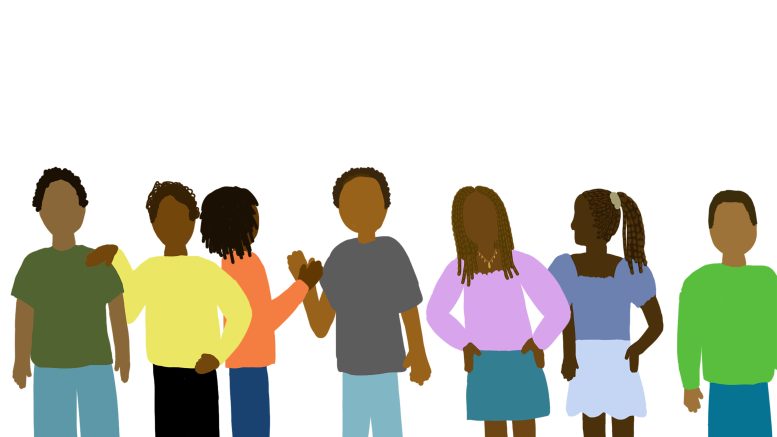Growing up, people have always been “hush-hush” when talking about Blackness. I would observe people doing mental and verbal gymnastics in order to avoid using the “B” word — Black. This was always confusing and strange to me as a Black kid. Why wouldn’t you say just Black? Why wouldn’t you acknowledge that I’m Black? Why did you just call that woman “chocolate mocha?”
Although I could tell that most of the time people avoided mentioning my race in order to avoid alienating me, in reality it did much worse. It made it feel like there was something wrong with Blackness, or that it was an evil taboo that shouldn’t be talked about, like Voldemort.
This is a trend I’ve seen for most of my life. The mention of the “B” word has people shifting in their chairs, holding their breath and producing a tense silence in the air as they anxiously wait to see which way the conversation will go.
Due to the hesitation and apprehension when talking about Blackness, a lot of people
don’t really know what it is. Instead, people form their ideas about what Blackness is through rigid media portrayals in which Blackness is typically centred through the American lens, and is very limited in its depictions of its muses.
Because of this, there are a lot of misconceptions about what Blackness is. I know, because most of my life I have been dealing with the repercussions. People think that Blackness looks, talks and operates in a single way, and that everything that deviates from that idea must not be “Black.”
This belief is why I have had to fend off many inquiries about why I sound and talk “white.”
It’s people believing that embracing Blackness or saying “Black Lives Matter” is radical or political, which is just sad.
I realize talking about Blackness makes a lot of people uncomfortable, but I haven’t been comfortable most of my life, so call it reparations. For the rest of Black History Month I will be talking about it. And if you are uncomfortable, ask yourself why. So, then, what is Blackness?
It is hearing, “I’m glad I’m not the only Black person.”
It is a reason to smile when you see a group of Black people you don’t know being unapologetically themselves and having fun.
It is spending nights crying and grieving the deaths of distant strangers that resemble your family and friends.
It is like shedding a layer of your protective armour to feel comfortable being yourself when you speak to someone who looks like you.
It is hating your hair only to grow up and love it.
It is realizing that those experiences you had as a kid that made you feel small were
racism, but you didn’t have the knowledge or language back then to identify them for what they were.
It is that look you and your friend gave each other after someone said something ignorant.
It is constantly being watched and gawked at.
It is choosing to keep your mouth shut to not ruffle any feathers and be labelled the “angry Black woman.”
It is choosing to speak up and to accept being labelled an “angry Black woman.”
It is creating and adhering to your own beauty standards.
It is learning to embrace your culture and heritage despite being told you shouldn’t.
It is watching the world grow to accept and respect people who look like you.
It is having a connection anywhere you go and being accepted with open arms.
It is the sign of relief and comfort of spotting someone with the same hue as you in a sea of people that don’t look like you.
It is using humour and laughter to make light of the daily instances of microaggression and bigotry.
It is not having to change the way you talk, censor yourself or tone yourself down to make other people uncomfortable.
It is being seen and unseen simultaneously.
It is having to write “people” when I really mean white people and non-Black people of colour in order to not offend anyone, and to have people hear my argument before they stoplistening.
It is joy, pain, strength, hope, struggle, pride, shame, power, understanding, resilience, laughter
and love. It is a commodity, it is complex, it is a sisterhood, a brotherhood, a togetherness. It is community, it is family, it is simply existing in your black skin.



